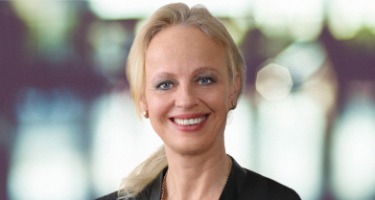This interview was conducted as part of the 2020 Edition of The Best Lawyers in Germany “Law Firm of the Year” award recognitions. Our partner Handelsblatt, also published these awards on June 27, 2019, online and in print in their June 2019 edition.
For Frank Grell of Latham & Watkins—Germany's 2020 “Law Firm of the Year” honoree in Banking and Finance Law—innovative technologies and company launches have their firm excited for the future. Grell joins Phillip Greer, CEO of Best Lawyers, to discuss those topics and address some of the financial hot-button issues that capture the attention of people around the world.
Over the past 20 years there's been a back and forth with regulation and deregulation of the banking industry, especially during the recession. How challenging is it to adjust to the change in policy, particularly for international and cross-border banks?
Frank Grell: The increased regulation is indeed challenging and goes to the core of the banks' business model. It results in increased costs for them in a situation where we have a zero-interest environment which makes it really difficult for banks to earn money. Besides being the head of our finance department, I am a restructuring lawyer. As such, I see how difficult it is for banks due to that regulatory environment and the rules which have been set there to stick to a credit in stressed or distressed situations and to participate in the restructuring.
Globally there's an increasing amount of debt being taken on. Interest rates are continuing to drop and it's possible that corporate bonds may have to follow suit. Do you see any dangers or hazards on the horizon? Could an insolvency crisis emerge for companies?
FG: We’ve heard for a number of years now that we are on the edge of the new big crisis. I personally have ceased to believe in that. What I see is that we have challenges to our economy overall and in particular in certain industries and on top a more challenging global environment, but I don’t see that the economy will fall off a cliff. That means that we will most likely not have a repetition of 2008/2009, but more a sliding downward trend. The high amount of debt which some companies have incurred given the easy availability of credit is likely to become a problem then. However, as of today, we still have so much liquidity in the market, that even companies who are not (or not longer) investment grade have the chance to refinance. So far we are doing well, but I see a risk of a sliding slope effect.
What are the biggest challenges as it relates to navigating a financial restructuring or insolvency?
FG: If you look at a global and cross-border restructuring, the different regimes and lack of harmonization of legal regimes around the globe is a challenge, but at the same time the different regimes provide additional tools in the toolbox of a restructuring lawyer. Beyond that, one needs to acknowledge that there's seldom a financial restructuring, but almost every distressed situation also has an operational element to it. Sometimes people try to ignore that and argue that repairing the balance sheet is sufficient to make the business itself healthy again. That, however, is mostly a too-quick answer. We try to see our role in restructurings to look beyond the pure legal questions at hand and—obviously knowing the limits to our expertise—answer the underlying business needs. With our global platform, we see the challenges mentioned in cross-border restructurings as chances to make use of our strengths for the benefit of the businesses.
Cryptocurrencies have become a widely discussed topic in the financial industry. If they begin to see a significant increase in adoption as a medium of exchange, do you see any legal hurdles arising because of their difference from fiat currency?
FG: What I do see is that we will also have regulation in that area, because of the increasing importance of that. However, it is really more difficult to regulate them given their flexibility and the ability for issuers to choose the place for the issuance in a way to circumvent cumbersome regulation. I think that for people and businesses to use cryptocurrencies more widely, they need to have something to trust in and rely on. So far, the regulated and regular currency is something that everyone believes in. For cryptocurrencies to get that same level of trust, I'm afraid there needs to be some form of regulation in that area.
Latham & Watkins is involved in Peloton’s IPO. What do you find interesting about your firm helping a new and recognizable brand grow in the marketplace?
FG: I cannot talk about this specific case, but in general terms, it is extremely interesting helping the founders of a new business as well as the people who grow a business and create a new and recognizable brand. As I said before, we look to provide more value than the pure and only legal advice, but also look at the underlying business and the commercial issues. We have that in our DNA. New and starting, as well as growing businesses, are of particular interest to us.
Are there any projects or upcoming work that you're particularly excited about?
FG: What I'm really excited about is our corporate-finance approach, which means that we are not only including debt and equity capital markets and classic banking work to provide a holistic approach for new money deals, but we are also including the restructuring side. Having leading tier 1 practices in all of banking, capital markets, and restructuring in Germany, combining those strengths really provides additional value for the clients and that is a project which I'm especially excited about.
This article has been edited for brevity and grammatical clarity.

































